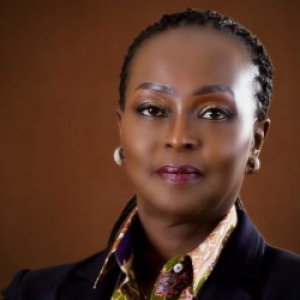I am so happy to have the opportunity to host this event today to mark UN Day and to resume the monthly meeting of the diplomatic corps following the Covid-19 hiatus. This is a joint UN event with thanks to FAO, UNDP, UNICEF, PAHO/WHO and IOM.
I was in New York last week when Resident Coordinators (RCs) from all continents met the UN Secretary-General (SG) and Deputy Secretary-General (DSG). As we all know, today the world finds itself in a perfect storm:
The uneven recovery from COVID, growing inequalities and a lack of trust in institutions are converging.
The war in Ukraine is taking its toll on the most vulnerable. And the multilateral system is stretched: gaps in positions are becoming ever more apparent as world leaders head to COP27.
Issues like adaptation [to climate change] and “loss and damage” are revealing divergent views of shared but differentiated responsibilities in the face of the climate crisis.
The SG and the DSG however made my task very clear: “Rescue the SDGs.”
In Guyana, we are privileged to work with a Government which drives an ambitious development agenda. In 2021 we signed a new Cooperation Framework with the Government, with the SDGs as our north star.
Consequently, the Agencies, Funds and Programs of the UN Development System in Guyana – that is our UN Country Team (UNCT) – also all concluded their respective programming documents through their respective Boards.
And just a couple of weeks ago, I was privileged to receive from the Minister of Finance the Government’s approval of our joint implementation plan – this positions the UN to support national objectives and policies for SDG realization within the framework of Guyana’s Low Carbon Development Strategy.
We are some 20 UN entities in Guyana delivering more than 120 projects with a funding envelope of approximately US$55 million for the current biennium.
This is with much thanks to the generous contributions of UN member states, notably Canada, the European Union/Team Europe, the United States of America, the United Kingdom, India through South-South Cooperation, Japan, Mexico, New Zealand, Norway, and the Republic of Korea.
Going forward, it will be my challenge and job with our UNCT to consolidate our interventions so that we align even further to national priorities – reducing the number of interventions, focusing them to support national leads, and bridging sectoral gaps for more impact.
An example is food systems and food security, an area in which intersectoral solutions for more effective interventions are advanced by the Food and Agriculture Organization of the United Nations and the World Food Programme collaboratively, focusing on agricultural inputs and social assistance, respectively.
Weaving dialogic practices into the delivery of the UN’s implementation plans will be important.
Expanding the practice of multi-stakeholder dialogues – as was done by the Government for the Low Carbon Development strategy – will have to be how we work at the UN.
We will encourage both government and civil society partners to engage in such dialogue and promote inclusion in all national processes that help lay the foundations for the country’s SDG achievement, ranging from energy transitions to electoral processes.
We will encourage the strengthening of constitutional bodies for rights protection and redress and seek to build partnerships to protect and expand civic space and deepen democratic norms.
For expanding the policy dialogue space on issues of central importance to Guyana’s Low Carbon Development Strategy, the UN has a partnership with the University of Guyana Green Institute. I hope you find those policy dialogues relevant and useful for your own work as well.
In keeping with the UN Secretary-General’s initiative, ‘Our Common Agenda’, I am glad to report that the UN system also has structured partnerships with umbrella organizations for youth and people living with a disability.
We are engaging systematically with indigenous communities, including through a recent joint UN mission to Mabaruma, pictures from which you see on the screen.
I hope to organize a debrief with our ministerial partners on our main findings from Mabaruma where we visited many remote communities including migrants.
Suffice to say, I was impressed with how the education and health systems are ‘leaning in’ to provide services to the country’s most remote communities and bending over backwards to address some of the most challenging social concerns among migrant communities.
On human rights and the global commitment to ‘leave no-one behind’ from the Agenda for Sustainable Development, we are proud to associate ourselves with a forthcoming National Human Rights Action Plan which is being led by the Ministry of Parliamentary Affairs and Governance.
I hope that we will be able to showcase some of that partnership in the Human Rights events which the Government will be organizing for 10 December, UN Human Rights Day.
The right to live without fear is a fundamental human right. So, we will continue to deliver the Spotlight Initiative, our flagship program to end gender-based violence. With this, we are proud of our collaboration with the Government, notably the Ministry of Human Services and Social Security, and grateful for the financial support of the EU.
The success of this program and every UN intervention in the country will have to be measured by national ownership. For Spotlight, national ownership is beyond just words. It is about integrated systems of support to survivors and violence; it is about services provided by the Government, that pull in partnerships of multilateral development Banks.
Thank you all once again for being here today and celebrating UN Day with us!



















